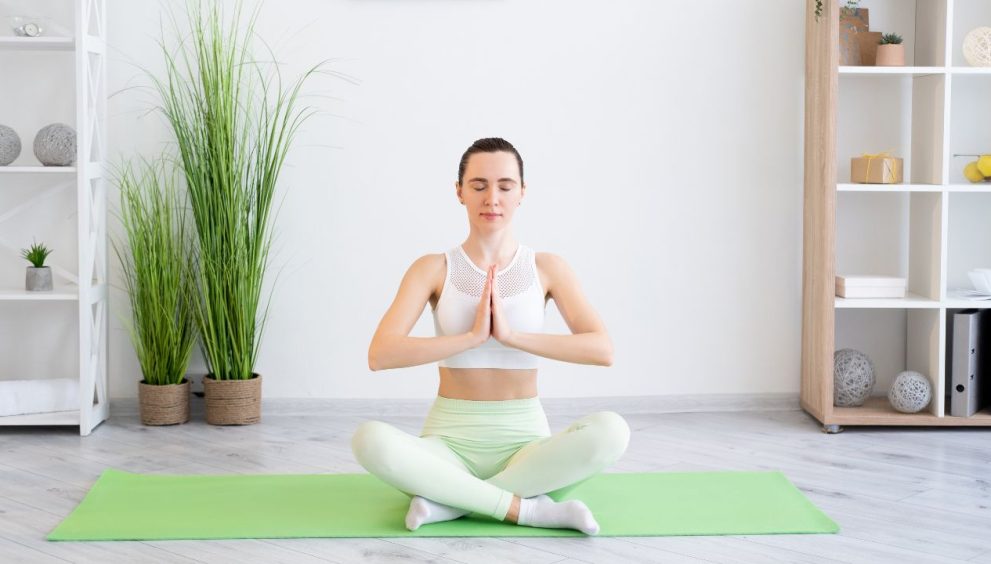Life is often a whirlwind of deadlines, responsibilities, and surprises, leaving little room for tranquility. Stress is an inevitable part of our lives, but chronic stress can harm mental and physical well-being.
While common advice like meditation and exercise works wonders, there are some underrated stress-relief strategies that can transform your days. In this article, we’ll explore 10 proven, lesser-known ways to relieve stress effectively.
Why Stress Relief Matters?
Stress isn’t just a mental state—it has tangible effects on your health. According to studies, long-term stress can lead to heart disease, obesity, diabetes, and weakened immunity. Beyond health, stress affects relationships, productivity, and overall quality of life. That’s why finding creative, effective ways to unwind is essential. Here are 10 strategies you may not have tried yet, backed by science, that can help ease stress and improve well-being.
1. Practice “Progressive Muscle Relaxation” (PMR)
Progressive Muscle Relaxation is a method that involves tensing and relaxing muscle groups sequentially to promote relaxation. This technique is not only effective but also simple enough to do anywhere.
- How it works: Start at your toes, tense the muscles for 5–10 seconds, and then release. Move upward through your body.
- Why it helps: PMR encourages physical relaxation, which signals your brain to reduce stress. A study published in the Journal of Anxiety Disorders found it significantly lowers cortisol levels.
2. Engage in “Forest Bathing”
Forest bathing, or “Shinrin-yoku,” is a Japanese practice of immersing yourself in nature.
- How it works: Spend time in a natural setting, focusing on sights, sounds, and smells.
- Benefits: Studies have shown forest bathing reduces stress hormones, boosts mood, and strengthens the immune system. A 2019 study in Environmental Health and Preventive Medicine revealed that just 20 minutes in nature can reduce cortisol by up to 16%.
3. Chew Gum for Instant Stress Relief
Chewing gum might seem trivial, but research proves it can help lower stress.
- Why it works: Chewing gum improves blood flow to the brain and reduces cortisol levels. A study by the National University of Singapore concluded that gum chewers report lower stress during multitasking situations.
4. Try “Art Therapy”
Expressing yourself creatively through art has therapeutic effects.
- What to do: Engage in activities like painting, drawing, or sculpting—even if you’re not an artist.
- Scientific backing: A 2016 study in Art Therapy: Journal of the American Art Therapy Association found that just 45 minutes of creative activity significantly reduces stress, regardless of skill level.
5. Use Essential Oils for Aromatherapy
Aromatherapy has been used for centuries to ease stress and promote relaxation.
- Best oils: Lavender, chamomile, and bergamot are proven stress-relievers.
- How it works: Inhale essential oils using a diffuser or apply diluted oil to your skin.
- Evidence: A meta-analysis in Evidence-Based Complementary and Alternative Medicine found aromatherapy to be effective in reducing anxiety and improving sleep quality.
6. Practice Laughter Yoga
Laughter is not only the best medicine but also a fantastic stress-buster.
- What it involves: A group activity combining intentional laughter exercises with breathing techniques.
- Benefits: Laughter lowers stress hormones like cortisol while increasing endorphins. Research from the International Journal of Yoga shows it also enhances mood and strengthens the immune system.
7. Keep a Gratitude Journal
Shifting focus from what stresses you to what uplifts you can work wonders.
- How to start: Write down three things you’re grateful for every day.
- Why it’s effective: Practicing gratitude rewires your brain to focus on positivity. A 2017 study in Psychological Science found gratitude journaling reduces stress and fosters emotional resilience.
8. Try Acupressure Techniques
Acupressure involves stimulating specific pressure points to release tension.
- Key points: The “Union Valley” point between your thumb and index finger can relieve headaches and stress.
- Evidence: A study in Complementary Therapies in Medicine highlighted acupressure’s effectiveness in reducing stress and anxiety.
9. Listen to Binaural Beats
Binaural beats are a form of sound therapy that can influence brain waves.
- How it works: Listening to two tones of slightly different frequencies in each ear creates a calming effect.
- Results: Research in Frontiers in Human Neuroscience suggests binaural beats promote relaxation and improve focus, especially in high-stress environments.
10. Organize Your Space
Decluttering your surroundings can declutter your mind.
- Steps: Start small—organize your desk, closet, or kitchen counter.
- Why it matters: A cluttered space contributes to a cluttered mind, increasing stress. Studies in Personality and Social Psychology Bulletin link a tidy home environment to lower cortisol levels.
Latest Insights: Stress Reduction at a Glance
| Stress-Relief Method | Effectiveness (Based on Studies) | Best Practices |
| Progressive Muscle Relaxation | 85% report immediate relaxation (Journal of Anxiety Disorders) | Use before bed for better sleep |
| Forest Bathing | Reduces cortisol by 16% (Environmental Health) | Spend at least 20 minutes in nature weekly |
| Chewing Gum | Improves multitasking, lowers cortisol (NUS Study) | Opt for sugar-free gum |
| Art Therapy | Reduces stress in 45 minutes (Art Therapy Journal) | Dedicate time to creative hobbies |
| Aromatherapy | Improves sleep, reduces anxiety (Evidence-Based Medicine) | Use high-quality essential oils |
Takeaways
Stress is unavoidable, but how you handle it makes all the difference. These 10 tips go beyond the usual recommendations and are backed by research to provide relief in unconventional yet effective ways. Incorporating even one or two into your routine can make a significant impact on your mental health.
Start small. Chew gum during a stressful commute or try gratitude journaling before bed. With consistent effort, these strategies can help you reclaim your peace and resilience.



